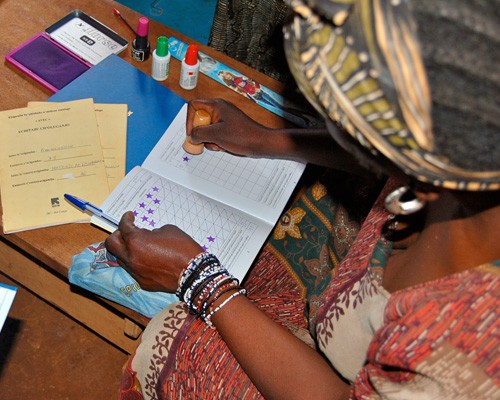- What We Do
- Agriculture and Food Security
- Democracy, Human Rights and Governance
- Democracy, Human Rights and Governance Strategy
- Supporting Free and Fair Elections
- Supporting Vibrant Civil Society & Independent Media
- Protecting Human Rights
- Promoting Accountability & Transparency
- Importance of Democracy, Human Rights, & Governance to Development
- COVID-19: Issues and Potential USAID Responses
- Countering Trafficking in Persons
- Global Labor Program
- Religious Freedom
- Youth Impact
- Economic Growth and Trade
- Education
- Environment and Global Climate Change
- Gender Equality and Women's Empowerment
- Global Health
- Humanitarian Assistance
- Transformation at USAID
- Water and Sanitation
- Working in Crises and Conflict
- U.S. Global Development Lab
Speeches Shim

Human welfare is defined not only in terms of freedom from hunger and poverty but also respect for individual dignity.
USAID recognizes that long-term, sustainable development is closely linked to sound democratic governance and the protection of human rights. We view the democracy, human rights, and governance (DRG) sector not in isolation but as a critical framework in which all aspects of development must advance together.
Our projects in health, education, climate change, and food security will not be effective and sustainable unless we work to:
- Support legitimate, inclusive and sound governance.
- Protect the basic rights of citizens.
- Support stable and peaceful democratic transitions.
Former USAID Administrator Rajiv Shah called for a “united approach” to integrate democracy, human rights, and governance considerations with socio-economic sectors in pursuit of broader U.S. development objectives.
The Administrator recognized that inclusive, accountable, and democratic governments are necessary and critical for ensuring that communities can withstand conflict and/or other shocks and that development gains are not lost, as well as creating stable partners for the United States.
DRG goals in politically restrictive countries can often be more effectively advanced through integrated programming led by other sectors. Integrated programs are not intended to replace core DRG programming or to dilute the efforts of socio-economic sectors. Rather, they are intended to be complement and reinforce.
An integrated approach is rooted in existing Agency practices throughout the program cycle. Moreover, integration is consistent with a number of key policy documents:
- Domestically, with the Quadrennial Diplomacy and Development Review (QDDR), National Security Strategy, and Presidential Policy Directive on Global Development.
- Internationally, with the Paris Declaration on Aid Effectiveness, the Accra Agenda for Action, and the Busan Partnership for Effective Development Cooperation.
Integration further promotes the principles of USAID Forward’s Implementation and Procurement Reform for increased engagement of host-country systems and local capacity development.
The Administrator signed a new policy to include democracy, human rights, an governance integration in program-cycle guidance and practices and to establish an Integration Fund in support of an Agency-wide staff trained in democracy, human rights, an governance cross-sectoral approaches.
We are investing in collaborative efforts in democracy, human rights, and governance because strong institutions and democratic participation, and well-trained staff and a solid evidence base, are essential to the long-term success of our work in areas such as global health, climate change, and food security.

Comment
Make a general inquiry or suggest an improvement.